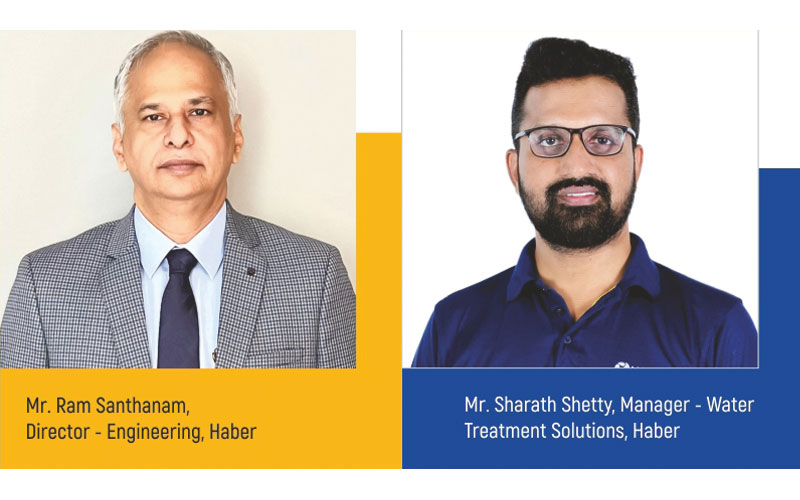In an interview with Paper Mart, Mr. Ram Santhanam, Director – Engineering & Mr. Sharath Shetty, Manager – Water Treatment Solutions at Haber delve into the realm of sustainability measures adopted by the pulp and paper industry, with a particular focus on the integration of Effluent Treatment Plants (ETPs), sharing valuable insights into the innovative measures and practices shaping the industry’s commitment to environmental sustainability.

Paper Mart: What role does sustainability play in selecting strategies within the Indian pulp and paper sector?
Sharath Shetty: The Indian pulp and paper industry is actively embracing sustainability, and one key practice gaining prominence is towards Zero Liquid Discharge or ZLD. ZLD is a holistic approach geared towards minimizing water wastage, aligning with the industry’s commitment to sustainable practices.
Ram Santhanam: In this context, integrated pulp and paper mills are making significant strides by reforming ETPs internally. We observe a change in cultural mindset, with ETPs once considered money-drain to approaching it with a technical nuance that it needs. Mills aim to not only comply with environmental standards but also optimize processes, promoting efficient water re-utilization.
Watch: Starkraft to Offer Capacity of 350,000 tons from May 2024
PM: What are the primary challenges that the mills equipped with integrated ETPs encounter, particularly in effectively managing treated effluents’ quality?
RS: Although setting up an internal ETP is a smart move, it’s not all smooth sailing. Mills face various challenges such as handling effluent variability, demanding adaptable processes, as well as precision of operations to meet environmental standards. Effective monitoring and control, proper chemical handling, and managing energy consumption also pose further operational challenges.
SS: It’s like a technical jigsaw puzzle where every piece counts for compliance, efficiency, and sustainability, which is where Artificial Intelligence & Machine Learning (AI/ML) come in as an enabler, and Haber can help with that.
PM: Can you elaborate on how it can contribute to overcoming operational hurdles and enhancing efficiency?
RS: AI/ML uses extensive datasets to predict and adjust how we treat wastewater, managing effluent variability. Haber’s program can help realize this real-time monitoring, enabling swift adjustments in critical parameters, optimizing chemical dosing, and minimizing operational costs. Chemical preparation and selection, when automated reduces manual input and minimizes operational costs. Real-time monitoring and control built on the AI platform would result in the system determining potential occurrences of stress and premeditating cautionary measures. ML models are especially needed when existing ETP schemes are to be adapted to suit the management’s latest water goals! Additionally, AI/ML-driven predictive maintenance ensures equipment reliability, so we can prevent, rather than eventually fix, issues.
SS: Understanding the complex process needs and complex water loops in the paper industry through a mechanical, operational, and chemical approach is critical to solution development. Re-use or recycling within the paper plants, where there is inestimable amount of re-circulation, and the potential impact it can have on product quality as well, needs both Process and Water Knowledge. Haber’s Process and Knowledge driven solutions are best suited for this industry with high variability in effluent.



